Electromagnetics Blog Posts
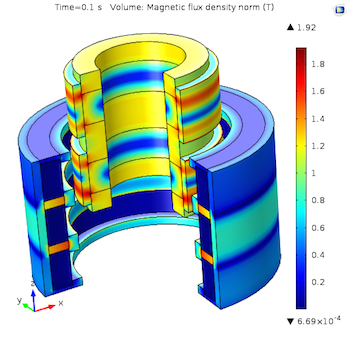
Modeling Linear Motors or Generators in COMSOL Multiphysics
We demonstrate how to customize a linear periodic boundary condition to model linear motors and generators in COMSOL Multiphysics®, with an example of a tubular generator used for wave energy.
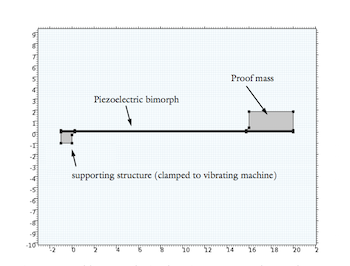
Optimizing the Power of a Piezoelectric Energy Harvester
When it comes to a piezoelectric energy harvester, the design configuration should maximize the level of power transfer. How can simulation be used to improve the design of an energy harvester?
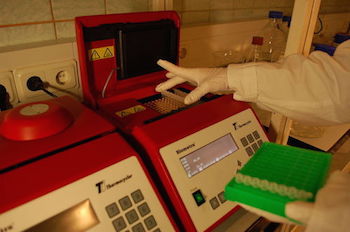
Creating Ultrafast Polymerase Chain Reaction Tests with LEDs
Researchers at the University of California, Berkeley, used simulation to develop an LED-based polymerase chain reaction system that shows potential for point-of-care testing. Get the full story.
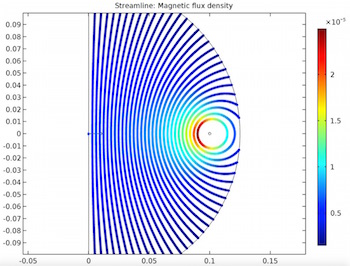
Analyzing Mutual Inductance in Different Coil Arrangements
Mutual inductance measures the amount of change required for a current flowing through one circuit to create a current in a nearby circuit. Simulation can be used to compute mutual inductance.
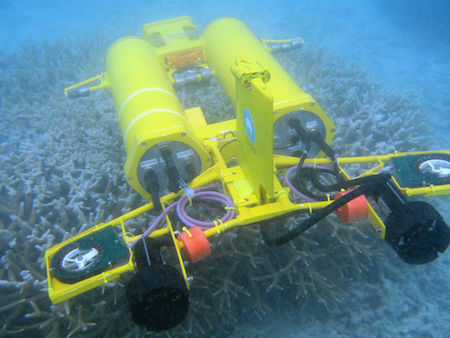
Simulating a MEMS-Based Pressure Sensor Inspired by a Cave Fish
Oceanic inspiration: Researchers from the PSG College of Technology in India used numerical simulation to investigate a pressure sensor design inspired by the blind Mexican cave fish.

App: Measuring the Diffraction Efficiency of a Wire Grating
We go over the features of the Plasmonic Wire Grating Analyzer demo app, which you can use as inspiration to build your own apps for more efficient wave optics and photonics simulation.
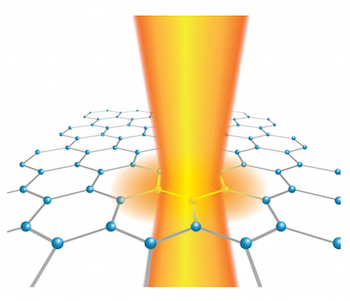
Should We Model Graphene as a 2D Sheet or Thin 3D Volume?
Graphene is a 2D sheet of carbon atoms that is 1 atomic layer thick. However, is graphene actually 2D or is it just incredibly thin, like a very fine piece of paper? How should it be modeled?
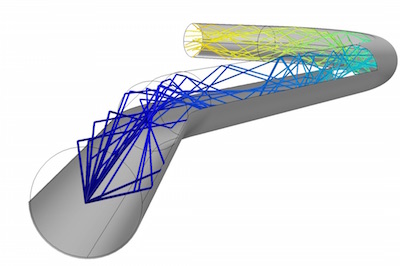
Simulating a Transparent Light Pipe to Optimize Transmittance
Transparent light pipes are used as an optimal source of natural light for underground areas, like subway stations, and areas without a lot of natural light, like prisons.
